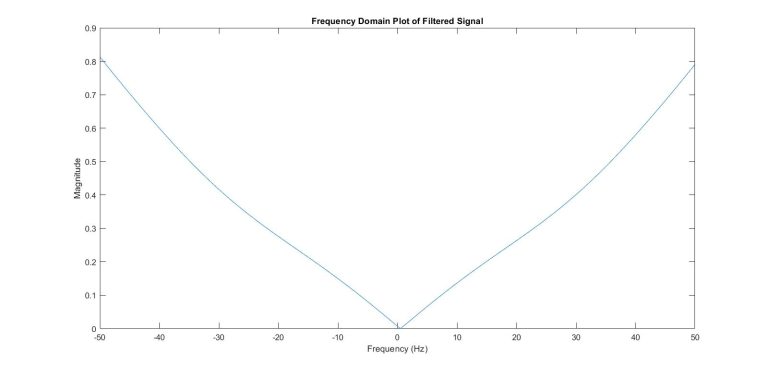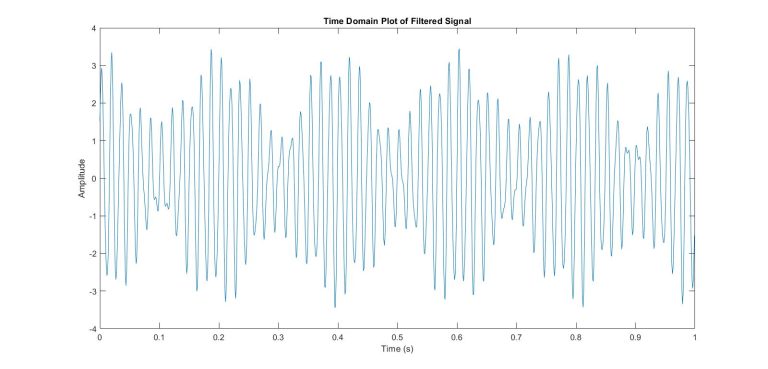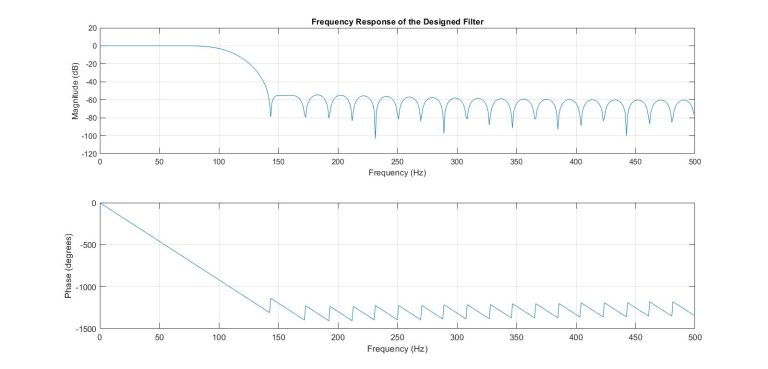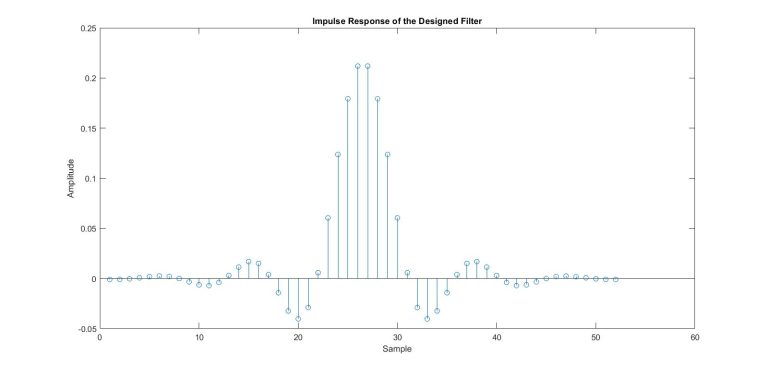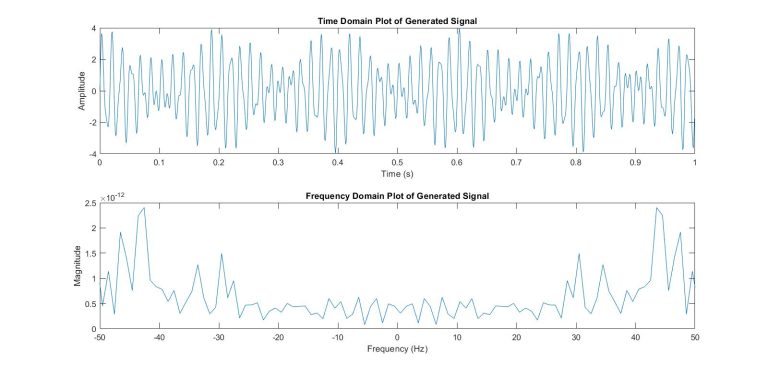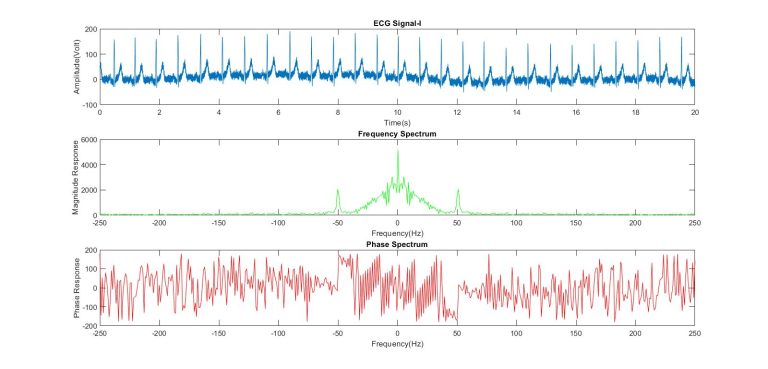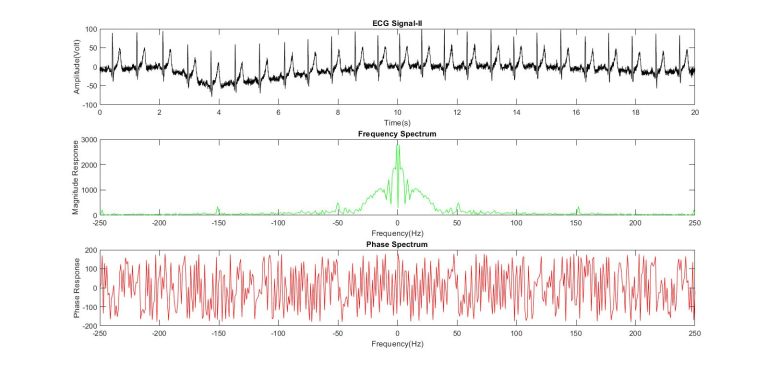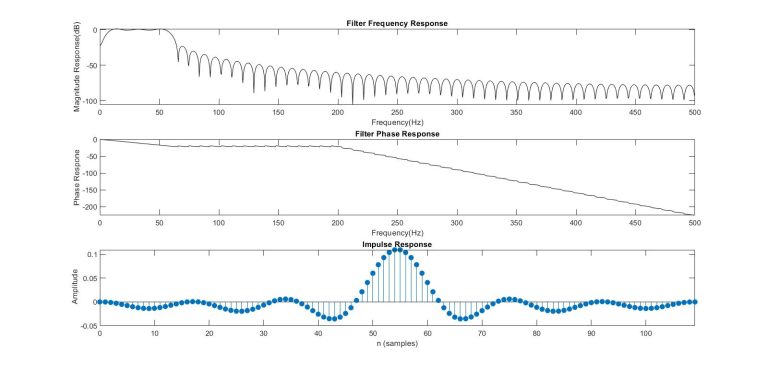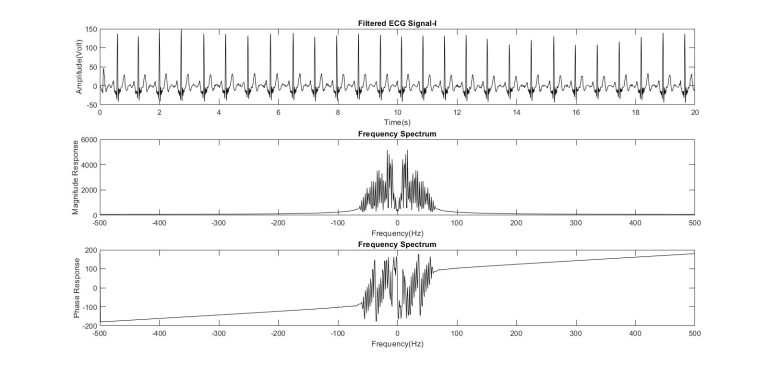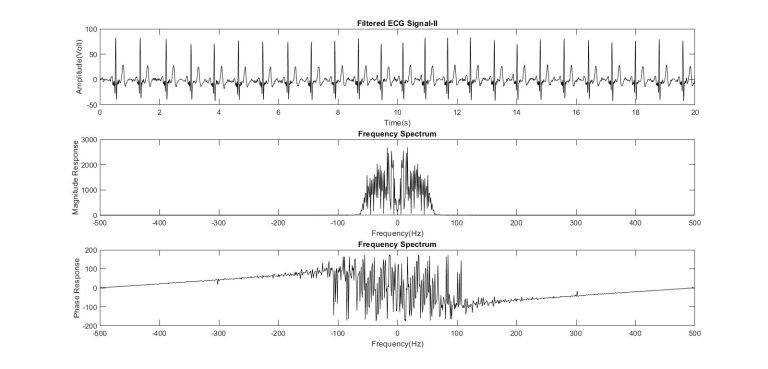Digital Filter for Noise Removal from ECG Signal.
The aim of this project is to design, test, and implement digital filters that effectively reduce noise in electrocardiogram (ECG) signals. Accurate processing of ECG signals is crucial for diagnosing and monitoring cardiac conditions. This project focuses on enhancing the quality of ECG signal processing by removing various types of noise, thereby improving the reliability of cardiac diagnostics. In this project, we explore the application of digital signal processing techniques to enhance ECG signal quality. ECG signals are often contaminated by noise from various sources, such as muscle contractions, power line interference, and movement artifacts. The primary goal is to design filters that can isolate and remove these unwanted components without distorting the actual ECG signal.
Filtering Techniques:
-Low Pass Filter: Allows low-frequency signals while attenuating high-frequency noise.
-High Pass Filter: Permits high-frequency signals and attenuates low-frequency noise.
-Band Pass Filter: Allows signals within a specific frequency range and attenuates frequencies outside this range.
-Notch Filter: Designed to remove specific frequency bands, making it ideal for eliminating power line interference.
Filter Design Methods:
-IIR Filter (Infinite Impulse Response): Known for its stability and efficient noise cancellation, IIR filters offer low latency and flexible design, making them ideal for real-time applications.
-FIR Filter (Finite Impulse Response): FIR filters provide a linear phase response, ensuring that all frequency components are delayed uniformly. They are inherently stable and less susceptible to quantization errors.
Advantages:
-Improved Diagnostic Accuracy: By effectively reducing noise, the designed filters help in producing clearer and more accurate ECG signals, which are essential for correct diagnosis.
-Real-Time Processing: The use of IIR filters allows for real-time noise reduction, which is crucial in emergency medical scenarios.
-Cost-Effective: Implementing digital filters in ECG monitoring devices is a cost-efficient way to enhance signal quality without needing additional expensive hardware.
-Versatility: The filters can be customized and adapted for various noise types and levels, making them useful in a wide range of medical environments.
Real-Life Applications:
-Hospital Monitoring Systems: Enhanced ECG signal processing improves the accuracy of continuous cardiac monitoring, leading to better patient care and quicker response times in critical situations.
-Wearable Health Devices: In wearable ECG monitors, effective noise reduction ensures reliable data collection, allowing for continuous and accurate monitoring of cardiac health outside of clinical settings.
-Telemedicine: In remote diagnostics, clean ECG signals are crucial for doctors to make accurate assessments without being physically present, thus improving healthcare accessibility.
-Research and Development: The project’s outcomes can be used in further research to develop advanced signal processing techniques for other biomedical applications, such as EEG or EMG signal enhancement.
The project involved designing filters tailored to different noise types commonly found in ECG signals. We applied these filters to real ECG data and evaluated their performance in terms of noise reduction and signal preservation. The filters were analyzed using MATLAB, with parameters such as frequency response, impulse response, and signal-to-noise ratio considered in the assessment. The project demonstrated the effectiveness of digital filters in enhancing ECG signal quality, which is critical for accurate cardiac diagnosis. By carefully selecting filter types and parameters, we successfully mitigated various types of noise while maintaining the integrity of the ECG signals.
